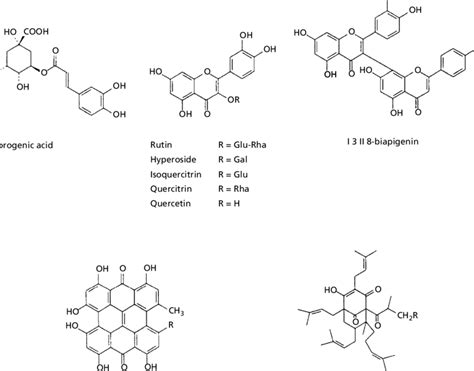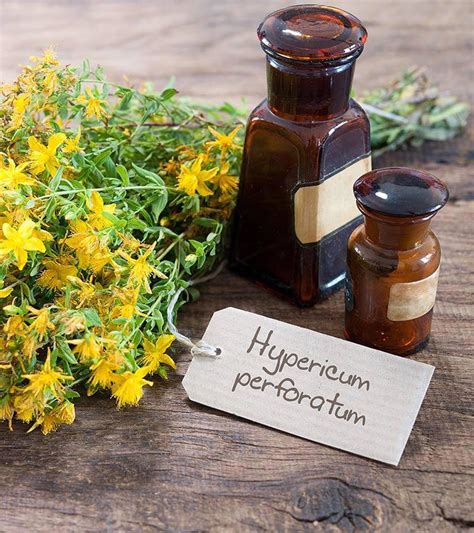Intro
Saint John's Wort has been a topic of interest for centuries, with its origins dating back to ancient Greece. The plant, known for its bright yellow flowers, has been used in traditional medicine for its potential health benefits. In recent years, Saint John's Wort has gained popularity as a dietary supplement, with many people turning to it for its perceived advantages. But what exactly is Saint John's Wort, and what are its benefits and drawbacks?
The importance of Saint John's Wort lies in its potential to provide relief from various health conditions, including mild depression, anxiety, and sleep disorders. The plant contains a range of bioactive compounds, including hyperforin and hypericin, which are thought to contribute to its therapeutic effects. With the increasing demand for natural remedies, Saint John's Wort has become a popular choice for those seeking alternative treatments. However, it is essential to approach this supplement with caution, as it can interact with certain medications and have adverse effects in some individuals.
As research continues to uncover the properties and potential uses of Saint John's Wort, it is crucial to separate fact from fiction. While some studies suggest that the plant may have antidepressant properties, others have raised concerns about its safety and efficacy. To fully understand the benefits and risks associated with Saint John's Wort, it is necessary to delve into the science behind this supplement and explore its history, mechanisms, and applications.
Introduction to Saint John's Wort

History and Traditional Use
The use of Saint John's Wort dates back to ancient times, with the plant being mentioned in the works of Greek physicians such as Hippocrates and Galen. The plant was used to treat a variety of conditions, including anxiety, insomnia, and depression, as well as physical ailments like wounds and inflammation. In traditional European folk medicine, Saint John's Wort was often used in the form of teas, tinctures, and salves, with the plant's flowers, leaves, and stems being utilized for their perceived medicinal properties.Chemical Composition and Mechanisms

Pharmacological Effects
The pharmacological effects of Saint John's Wort are complex and multifaceted, with the plant's bioactive compounds interacting with various biological systems. The plant's antidepressant effects are thought to be mediated by its ability to inhibit the reuptake of neurotransmitters, as well as its potential to modulate the activity of certain enzymes involved in neurotransmitter metabolism. Additionally, Saint John's Wort may have anti-anxiety and sedative effects, which may be attributed to its ability to interact with the body's GABA and glutamate systems.Benefits and Uses

While the evidence for Saint John's Wort's effectiveness is mixed, some studies suggest that the plant may have antidepressant properties, with a 2010 meta-analysis published in the journal Phytotherapy Research finding that Saint John's Wort was more effective than placebo in treating mild to moderate depression.
Precautions and Interactions
While Saint John's Wort may have potential benefits, it is essential to approach this supplement with caution. The plant can interact with certain medications, including antidepressants, blood thinners, and immunosuppressants, which may lead to adverse effects. Additionally, Saint John's Wort may have side effects, such as gastrointestinal upset, dizziness, and allergic reactions, which can be severe in some individuals.Risks and Side Effects

Regulation and Quality Control
The regulation and quality control of Saint John's Wort supplements are essential to ensure the safety and efficacy of these products. However, the quality of Saint John's Wort supplements can vary widely, with some products containing contaminants, such as heavy metals and pesticides, which can be harmful to human health. Additionally, the lack of standardization in the manufacturing process can lead to inconsistent levels of bioactive compounds, which may affect the supplement's efficacy and safety.Conclusion and Future Directions

What is Saint John's Wort used for?
+Saint John's Wort is used to treat a range of conditions, including mild depression, anxiety, sleep disorders, and wounds.
Is Saint John's Wort safe to use?
+Saint John's Wort can interact with certain medications and have adverse effects in some individuals. It is essential to approach this supplement with caution and consult with a healthcare professional before using it.
Can Saint John's Wort be used in combination with other medications?
+Saint John's Wort can interact with certain medications, including antidepressants, blood thinners, and immunosuppressants. It is essential to consult with a healthcare professional before using Saint John's Wort in combination with other medications.
What are the potential side effects of Saint John's Wort?
+The potential side effects of Saint John's Wort include gastrointestinal upset, dizziness, allergic reactions, and photosensitivity.
How can I ensure the quality and safety of Saint John's Wort supplements?
+To ensure the quality and safety of Saint John's Wort supplements, look for products that have been manufactured by reputable companies and have been tested for purity and potency.
We hope this article has provided you with a comprehensive overview of Saint John's Wort, its potential benefits and risks, and its uses. If you have any further questions or would like to share your experiences with Saint John's Wort, please feel free to comment below. Additionally, if you found this article informative, please share it with your friends and family who may be interested in learning more about this supplement.
